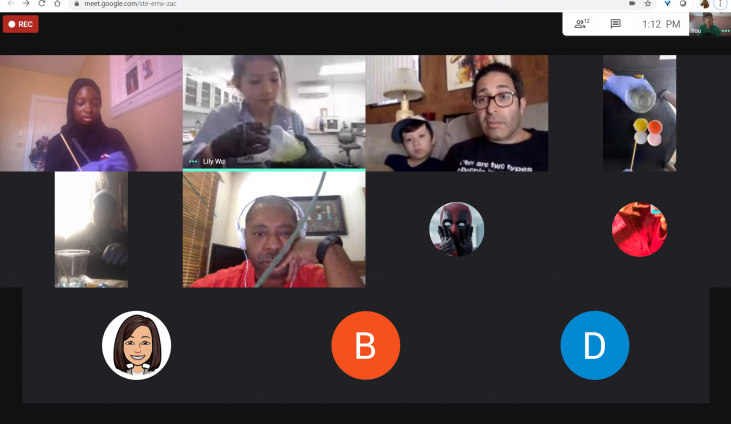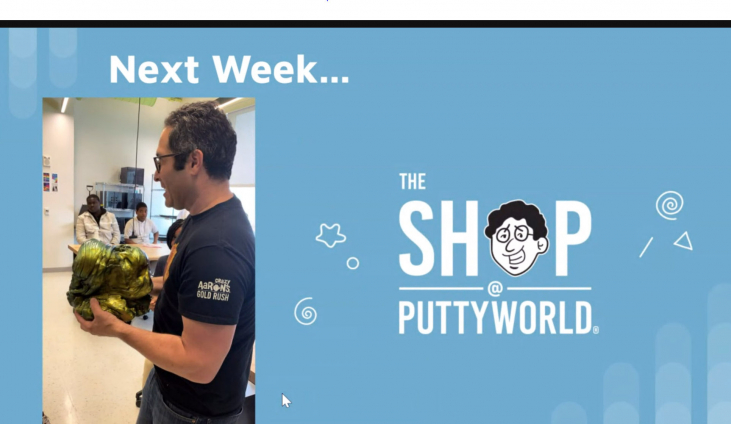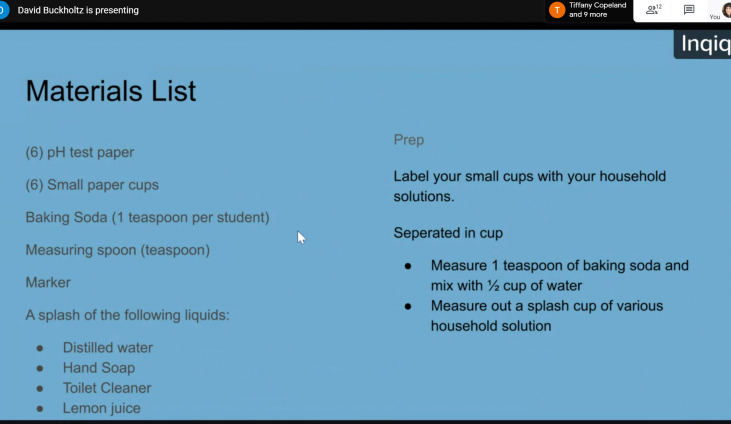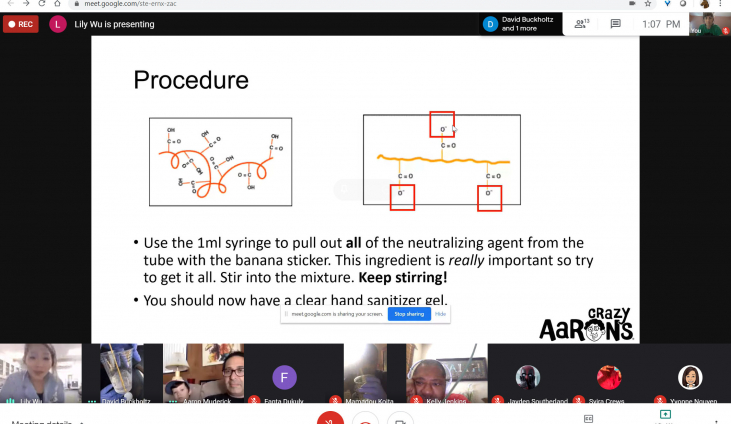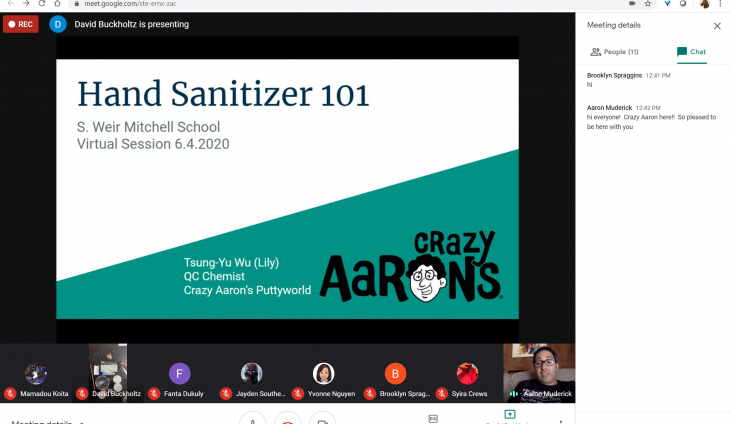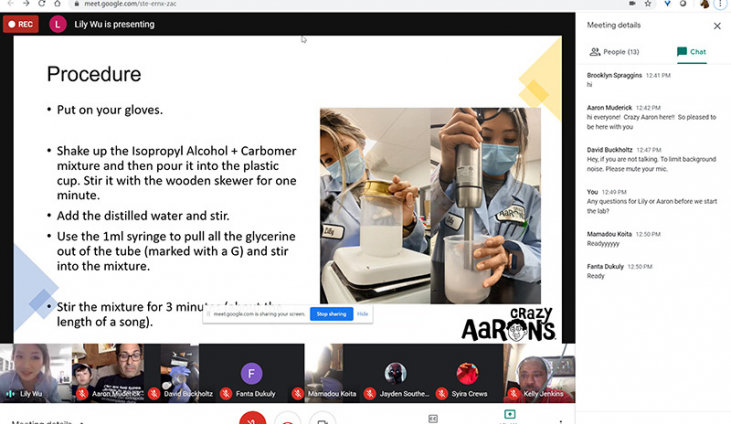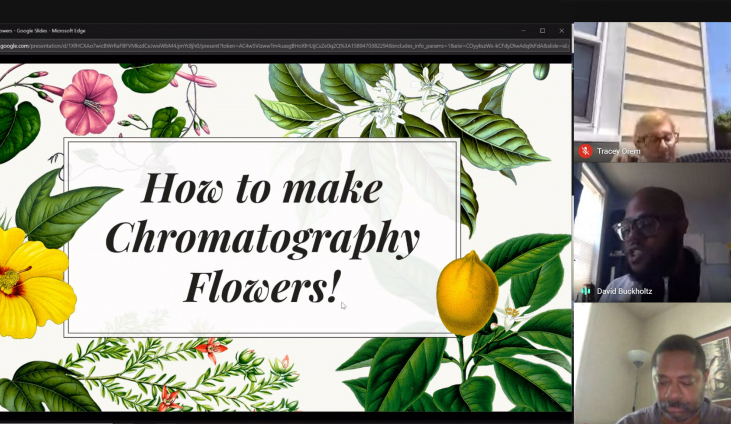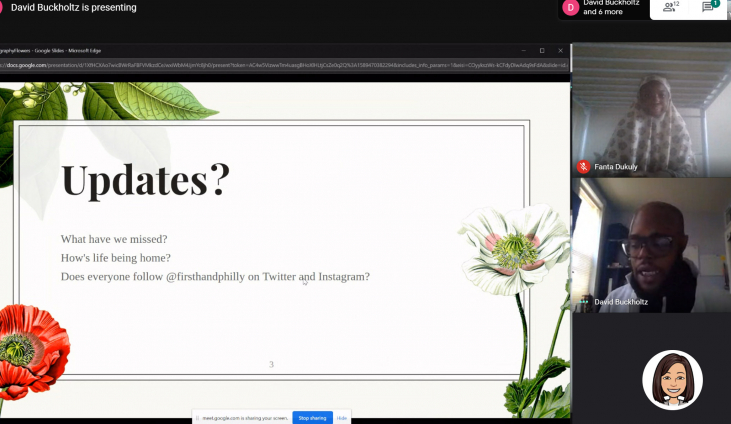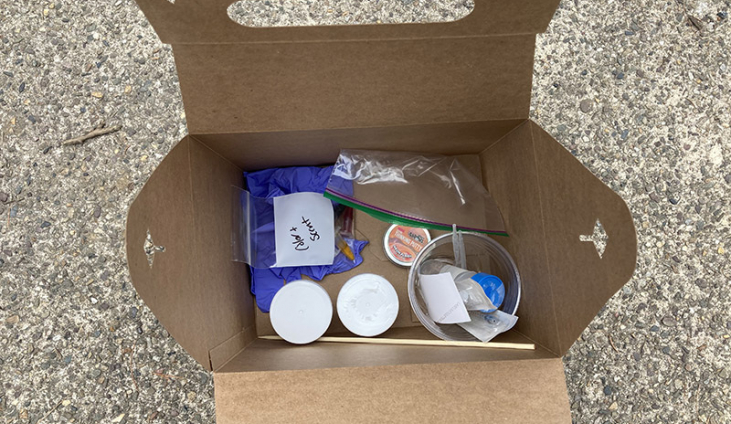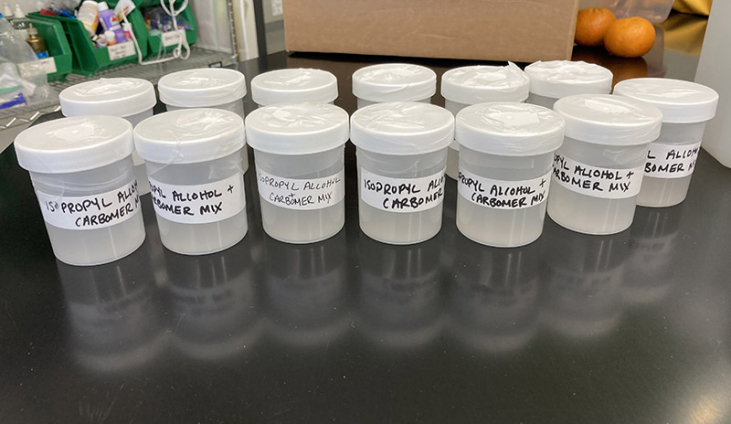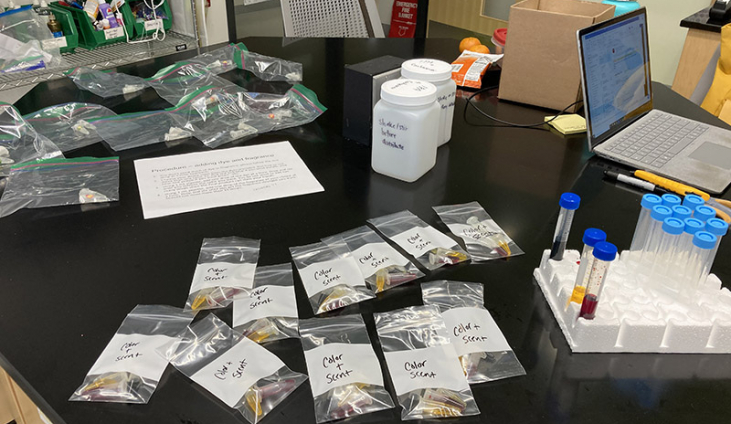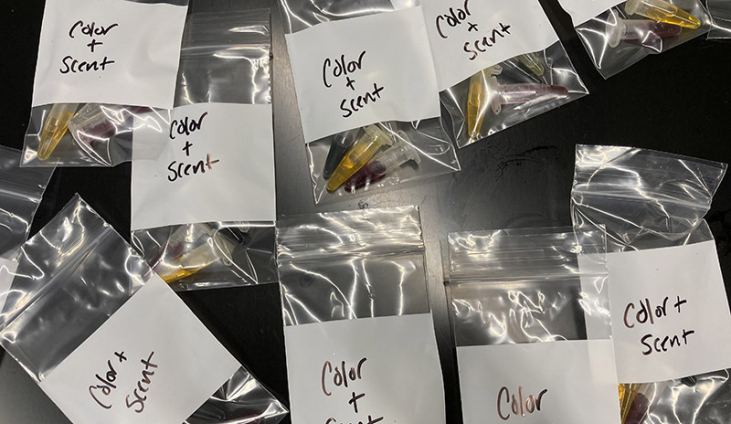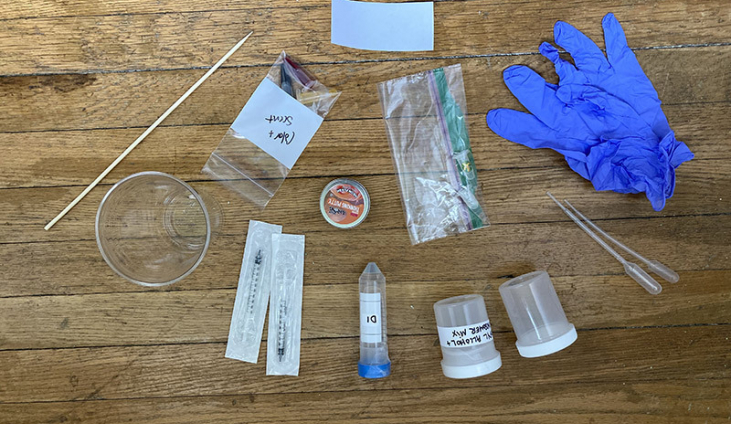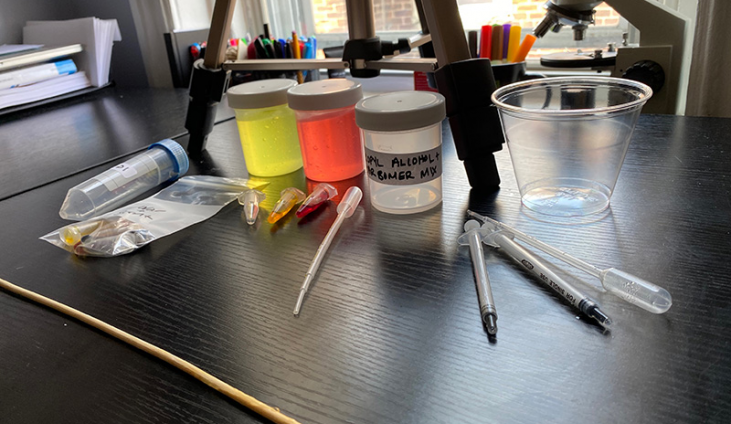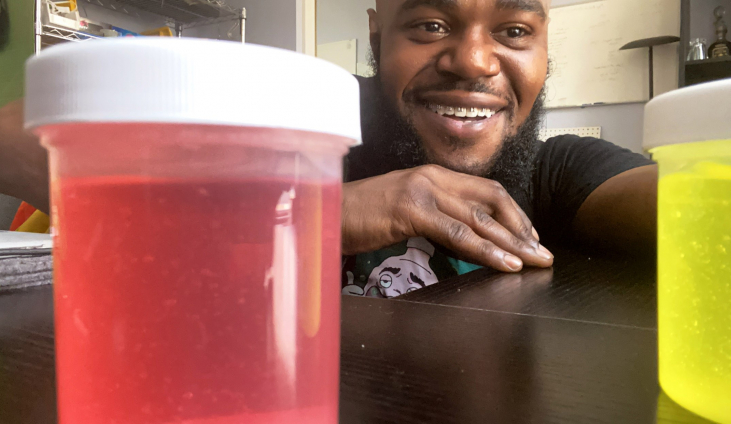This spring brought significant change to the learning environment in Philadelphia and FirstHand, our free STEM education program for middle and high school students, was no exception.
For six years, FirstHand has provided place-based, hands-on STEM curricula. Our lab has been a place for students to reimagine what a classroom can be and how they learn. So like many place-based programs, the pivot to virtual learning was a completely new landscape.
FirstHand is not meant to replace the classroom, but to enhance lessons in a way that inspires students to enjoy STEM. We’ve been able to stay true to this model with partner school, S. Weir Mitchell Elementary even during such upheaval. After reaching out to 7th and 8th grade science teacher, Ms. Nguyen we explored ideas on how to best support this new learning environment and our shared students in general. She invited us to facilitate hands-on STEM demos during her science “office hours” on Google Meet, to directly complement her learning objectives.
Hands-on learning requires materials. How else can we make?! While the FH team put significant effort into developing activities that were resource-minimal, it was also important that we could provide even the most basic materials to our students. This was definitely a learning curve for our team! We tried mailing supplies to all the students but realized the deliveries could be unreliable too so instead we hand-delivered the kits individually to each of our students’ homes.
The lessons encourage students to make STEM connections within their homes, using everyday household objects like coffee filters and soap. We continue to tie in industry-relevance and mentorship whenever possible. For example, one virtual class featured founder Crazy Aaron and chemist Lily Wu of Crazy Aaron’s Thinking Putty, a local company and long-time FirstHand mentor. We collaboratively designed a make-your-own hand sanitizer activity and produced kits with all necessary ingredients for students to make their own container of gel.
This highlighted the entrepreneurial pivot of the company, the public health needs of communities during the COVID-19 pandemic, and provided an important reminder for students on the importance of flexibility and thinking outside-the-box-in the classroom and beyond.

